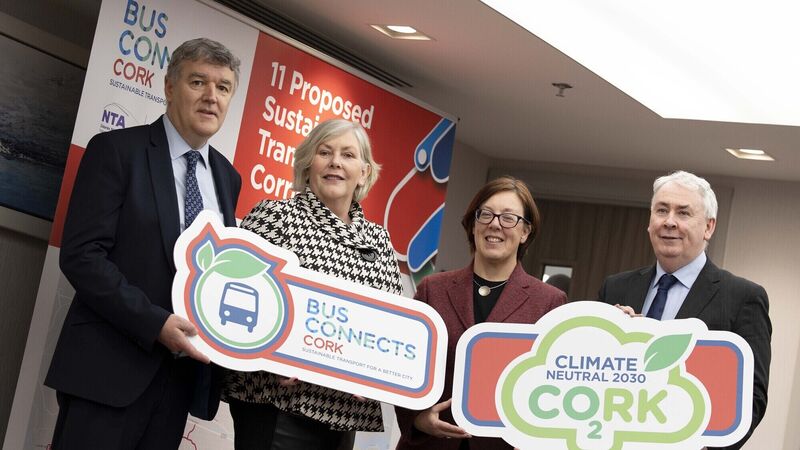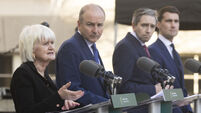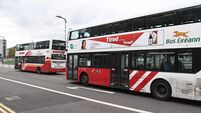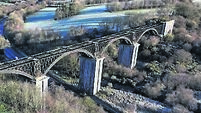Health groups call for ‘urgent implementation’ of BusConnects

At the launch of the second round of consultation on Sustainable Transport Corridors for Cork in March are (left to right) Gerry O'Beirne of Cork City Council; Ann Doherty, Chief Executive of Cork City Council; Anne Graham, CEO of the National Transport Authority and Hugh Creegan of the National Transport Authority. It is said BusConnects would allow people of all ages to have healthier choices in transport. File picture: Clare Keogh
An alliance of health, medical, environmental and sustainable transport advocates have called for urgent implementation of BusConnects which they say is at risk of being delayed or “watered down”.
The group which includes the Irish Heart Foundation, Irish Doctors for the Environment, the Irish Pedestrian Network and Cyclist.ie said political support for BusConnects was “lukewarm at best” at recent public meetings in Dublin and Cork.













